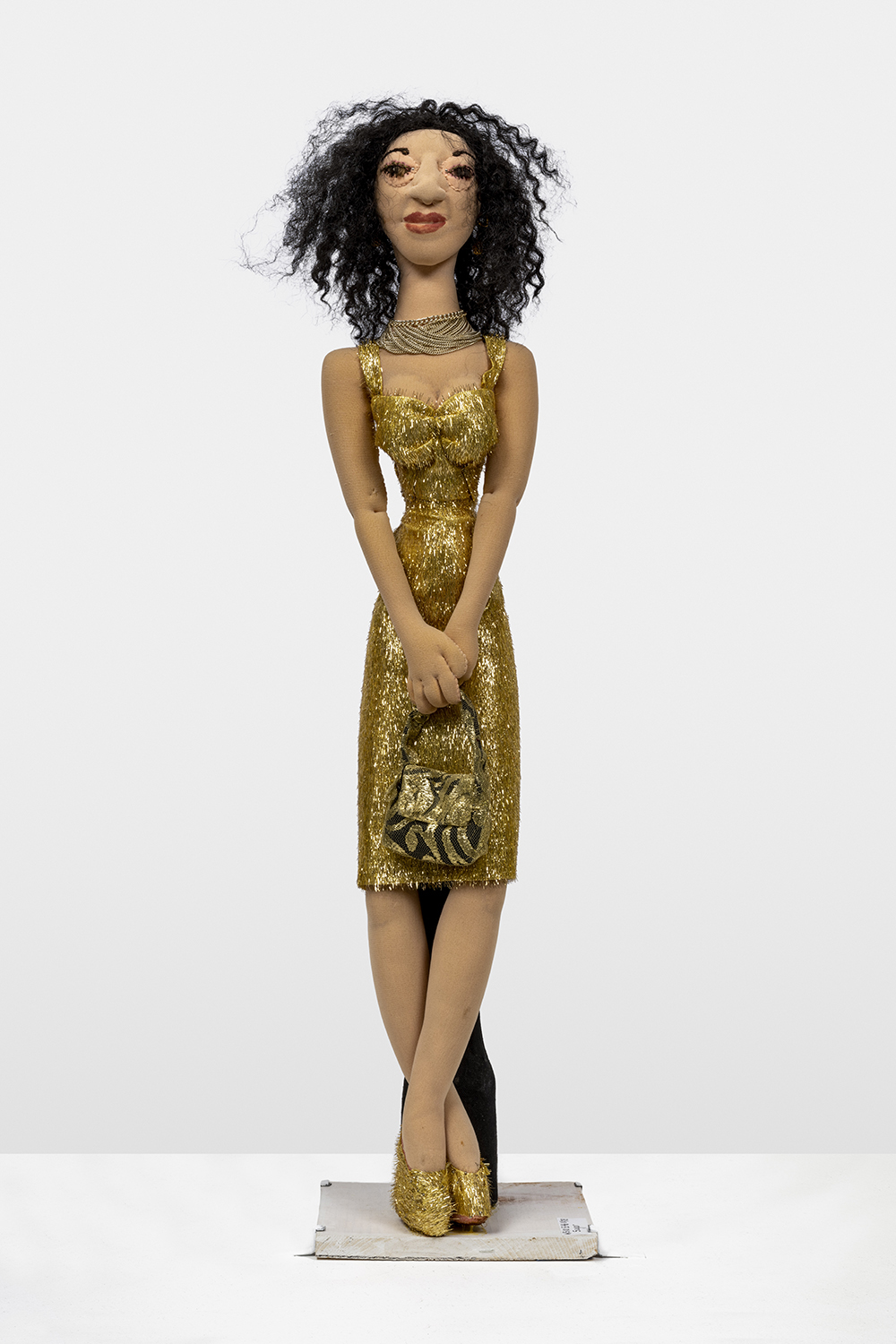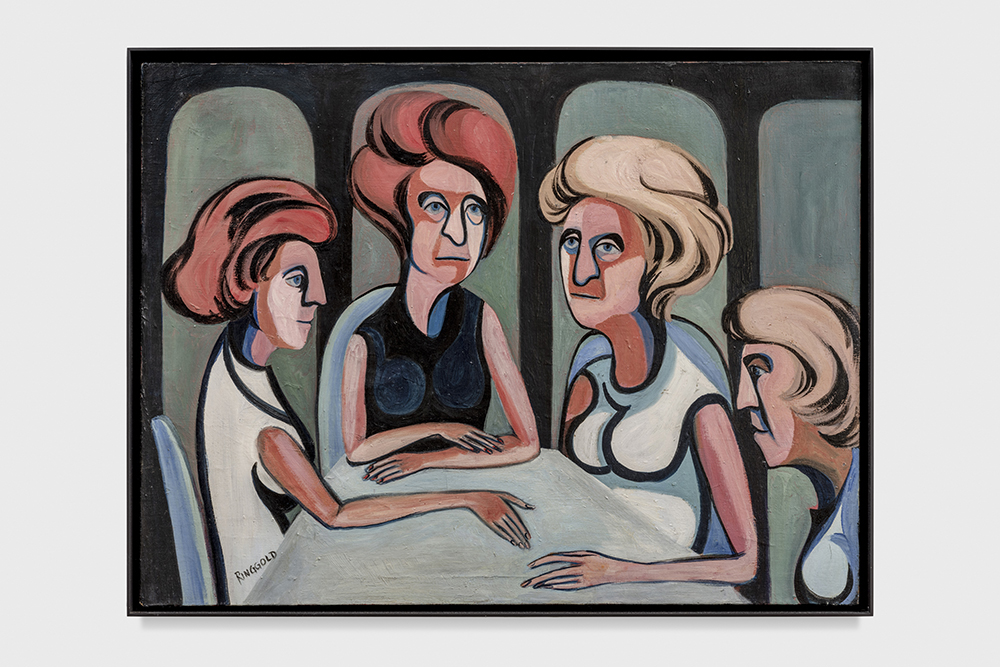Maya Angelou’s words You may shoot me with your words / You may cut me with your eyes, / You may kill me with your hatefulness, / But still, like air, I’ll rise speak to Faith Ringgold’s origins—as a college student in the 1940s, she was told by her professor that she had no talent for art. According to Dr. Lisa Farrington’s 2004 monograph on the artist, such words served as a slingshot of unwavering optimism.
“Faith Ringgold: A Survey” reveals her to be a prolific, trailblazing artist, storyteller and activist whose practice interrogates art his-story. Through works on canvas and paper, quilts, sculpture and printmaking, Ringgold demonstrates aesthetic autonomy in the face of the patriarchal bias inherent within the art canon as well as early male-centric discussions about the Black Arts Movement. In fact, along with Kay Brown, Dindga McCannon, Carol Blank and Pat Davis, she became a founding member of the New York–based collective “Where We At: Black Women Artists, Inc.” in 1971.
Made that year, Woman Free Yourself (1971) is an offset poster that appropriates a banner style of lettering, stating the work’s title in grape purple and taffy green. It correlates in composition, hue and text style to Unite (1971), a print created by Barbara Jones-Hogu, a founding member of the Chicago-based artists’ collective AfriCOBRA (African Commune of Bad Relevant Artists). Echoing the sentiments of Sojourner Truth’s speech, “Ain’t I a Woman?,” the work makes a direct application of the Black Power theme of self-determination.

Faith Ringgold, Sugar, 1978. Courtesy of the artist and Jeffrey Deitch.
Ringgold’s practice includes textile works known as “Story Quilts.” Tar Beach #2 (1990–92) is made of silks pieced together, upon which Ringgold printed a surreal scene: a Black family sits on a city building rooftop with a violet-blue evening against the skyscrapers. Two figures lie on a blanket staring up at the sky, while another figure, a girl, soars freely among the stars. Present in the scene is the character Cassie Louise Lightfoot from her children’s book, with whom Ringgold mixes her own memories of growing up in Harlem to narrate her-story.
In Jazz Stories: Mama Can Sing, Papa Can Blow #8: Don’t Wanna Love You (2004), Ringgold—using acrylic on canvas with a patchwork fabric border—captures the magic of musical improvisation. At center stage is a Black female lead singer adorned with a purple and tangerine spirograph print dress. This queen—with a confident, captivating gaze and hands on her roller-
coaster, brickhouse hips—eliminates any hint of competition. Orange brushstrokes dancing around a jazz band and a blue background framed with geometric shapes almost inspire the audience to foot-tap in participation.
Ultimately, “Faith Ringgold: A Survey” represents the complete version of an artist who spoke in her own voice responding to and transcending the thought leaders of her day. So, whether it is expressionism, abstraction, conceptualism, feminism or Black Nationalism, Ringgold uses her creative tools as a weapon of agency. To be sure, this retrospective is a once in lifetime experience worth playing over and over again, like Aretha Franklin’s version of Respect.


